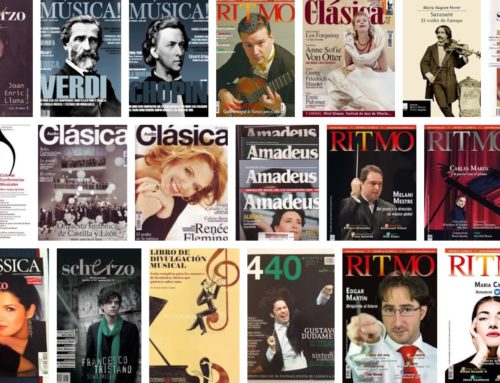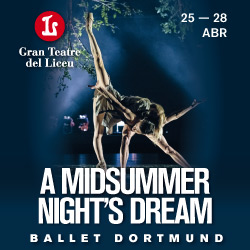La crítica al debú de Juanjo mena como titular de la BBC Philharmonic
Mahler Review, BBC PhilharmonicFemke Colborne falls for Beyonce’s much old cousinWritten
by Jonathan Schofield. Published on Monday at 3:52 PM.Mahler Review, BBC
PhilharmonicWHAT do Beyonce and Gustav Mahler have in common? More than you might
think, according to a recent biography
of the Austrian composer by classical
music buff Norman Lebrecht. The pair
are cousins four times removed:
members of Mahler’s family moved to
the US in the late 1800s and
apparently became acquainted with
some of Beyonce’s relatives.
The feeling of tension built as
the cellos played more thumping bass lines with the same passion, stray
hairs already hanging from their bows.
There was no bling or booty-shaking at the Bridgewater Hall on Saturday night, when the BBC
Philharmonic performed Mahler’s gigantic Symphony No 2. But like his cousin, Mahler enjoyed
a spectacle. His second symphony is one of the biggest pieces in the symphonic repertoire,
requiring 10 horns, eight trumpets, a huge percussion section, two soloists, a choir, and an
organ, and it contains some of the most earth-shattering moments of any symphony. To add to
the sense of occasion, this was the BBC Phil’s first official concert under its new chief
conductor Juanjo Mena. The Spanish maestro has been working with the orchestra since his
appointment was first announced in July 2010, but tonight marked the official start of his
tenure. It was also a new beginning for the orchestra in another sense – the start of its first
season based in shiny new studios at the BBC’s new MediaCityUK complex in Salford Quays.
And what a way to kick things off. At some concerts there is just something in the air; no one
knows where it has come from, but both the players and the audience can sense it. This was
one of those concerts. It helped that there was a very good audience, obviously keen to come
and hear how the orchestra would perform under Mena. They got their answer in the first few
bars: the cellos played their menacing opening line with a precision, commitment and
character that would be sustained by everyone else in the orchestra throughout the rest of the
piece. The first movement was played with stunning rhythmic precision, Mena drawing a
beautifully rounded and full sound from the violins. The feeling of tension built as the cellos
played more thumping bass lines with the same passion, stray hairs already hanging from their
bows. Mena leant closely over the violins, willing them to give more – although it was hard to
see how they could. The second movement provided a stark contrast – a brighter, more dancelike
affair that required a much lighter touch. And the orchestra provided it, dispatching the
challenging pizzicato section with confidence and class.Before the audience had a chance to
shuffle in their seats, the timpani came crashing in to introduce the third movement. This was
a different style again – a kind of macabre waltz
with the tune oscillating around the different
sections of the orchestra. There was an excellent
clarinet solo and impressive control from the
solo piccolo, and the calamitous noise at the end
of the moment was just one of many roofraising
moments. Peel Imagesdsc_3439
The fourth movement began with the sound of a
solo mezzo soprano appearing from somewhere within the orchestra, and it took me several
seconds to establish that Iris Vermillion had been positioned stage right in front of the horns.
The staging worked well, establishing a sense of togetherness between the soloists and the
orchestra. This serene, longing fourth movement was an interlude of calm, preparing us for the
overwhelming passion of the finale. Then the London Symphony Chorus, who had been
waiting patiently in the choir stalls all evening, finally got their moment to shine. Their first
notes were quiet and contained, and the audience held their breath as they were joined by the
muffled sound of trumpets and horns off stage. There were more solo sections here from
Vermillion too, and from soprano Ailish Tynan, who did a great job after being drafted in at the
last minute to replace Susan Gritton. And the best was still to come. I didn’t know how they
could possibly get any louder, but the sound they produced in the incredibly moving finale was
on another level again – not in decibels, but in sound weight and quality. Before this concert, I
had wondered what a Spanish conductor might bring to this heavy and serious Germanic
music. I don’t know what Mena did to the BBC Phil, but it worked. He and the orchestra have
been working closely together now for more than a year, settling into each other and
establishing a partnership – and it shows.But the real star of the evening was, of course,
Mahler, for having created such an amazing piece of music that is still being performed with
such enthusiasm some 120 years after it was written. Will Beyonce’s songs still provoke such
passion in 120 years?



















Últimos comentarios